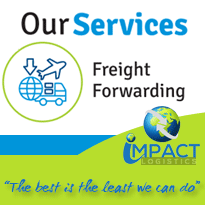Under the current Ethiopian Legal System, there are several laws pertaining to customs regulation in Ethiopia. These laws include:
| The Customs Proclamation No. 859/2014 | DOWNLOAD |
| Customs Proclamation Amendment No. 1160/2019 | DOWNLOAD |
| Social Welfare Levy on Imported Goods Regulation No. 519/2022 | DOWNLOAD |
| Export Trade Duty Incentive Schemes Proclamation No. 768/2012 | DOWNLOAD |
| Investment Proclamation No. 1180/2020 | DOWNLOAD |
| Federal Tax Administration Proclamation No. /983/2016, and Council of Ministers of Regulation No. 407/2017 on Federal Tax Administration | DOWNLOAD |
| The various tax proclamations (Income, VAT, Sur tax, and Excise tax) | CLICK HERE |
| The Revised Regulation on the Importation of Goods on Franco- Valuta Basis Council of Ministers Regulation No. 88/2003 | DOWNLOAD |
| Customs Clearing Agents Council of Ministers Regulation No.108/2004 | |
| Customs Tariffs Council of Ministers Regulation No. 122/1993 | |
| Customs Tariffs Amendment Regulation No. 89/2003 | DOWNLOAD |
| The Customs Proclamation No. 859/2014 | DOWNLOAD |
| Tariff Book (Customs Commission, August 2019) | DOWNLOAD |
Among these laws, the Customs Proclamation No. 859/2014, as amended by proclamation No.1160/2019 (herein after the Proclamation) lays the general framework for Customs Regulation in Ethiopia. So, the key features of the Proclamation are discussed below.
The reader is strongly advised to examine the above laws and documents (and other laws in relation to customs, especially directives) to have a better understanding on customs regulation.
1. Scope of Application
(Article 3 of the Proclamation)The Proclamation is applicable in the entire territory of Ethiopia in particular, it regulate import goods, export goods, goods in transit and any goods subject to customs control including rights and obligations of persons who takes part in customs formalities.
2. Prohibition or Restriction of Specific Imports and Exports
(Article 4 of the Proclamation)As a principle, Ethiopia allows the free trade of any type of commodities. Nevertheless, there are provisions which prohibit or restrict the importation or exportation of goods. In case of prohibited goods (such as narcotics and drugs), no person in Ethiopia may import, export or transit prohibited goods. Regarding restricted goods, no person may import, export or transit restricted goods unless in compliance with the requirements of the restriction.
In Ethiopia, most of the prohibitions and restrictions on importation and exportation are rendered by the administrative bodies regulating that particular product in question. For instance, the Food, Medicine and Health Care Administration Authority have imposed restriction on specific food products and supplements. Hence, one has to go through the directives of the administrative organs, in order to precisely identify the prohibited and restricted goods.
3. Principles of Customs Operation
(Article 5-7 of the Proclamation)The major principles, under the Proclamation, relevant in customs operation include;
- Promote a self-assessment system whereby importers and exporters present the value of goods and pay duties and taxes by themselves;
- Be based on the principles of risk management, transparency and accountability and create a conducive environment to provide equitable, expeditious, ,predictable and reliable services in the exercise of customs control;
- Promote and support manufacturing industry and economic development;
- Provide clear information to the customers and be based on the use of internationally accepted information technology systems through which information is gathered, analyzed, used and stored in the course of cooperation and consultation among concerned bodies;
- Prevent illegal practices by promoting self-compliance.
- Customs approved treatment or use of goods without any discrimination as to the nature, quantity, origin, and destination or shipment conditions of the goods. However, a specific treatment or use of good is justified if such measure is taken for the protection of public morality, the protection of health and life of humans, animals or plants, the protection of historical and cultural heritages.
4. Obligations Related to Customs Operations
The obligations envisaged under the Proclamation include;
- Obligation to install cargo tracking device on carriage of goods during import and export or transit.
- Obligation to Pay Customs Duties and Taxes (Article 109 of the Proclamation):
Unless otherwise provided by law or decided by the Commission, duties and taxes are payable for any imported or exported goods. - Obligation to provide information (Article 133 of the Proclamation):
Any person who has information about untaxed or less taxed goods in contravention of customs law, or about prohibited or restricted or contraband goods is required to immediately inform such fact to the nearest branch of the Authority or law enforcement body. In what may seem as an incentive, the Proclamation states that the identity of the person who supplied the information cannot be disclosed. Further, the Commission is obliged to pay the informant if the provided information leads to seizure of goods. - Retaining of information (Article 134 of the Proclamation):
Any person who is responsible to pay duties and taxes and thus possesses any documents or information necessary for customs formalities has the duty to retain them for a period of five years. This period commences from the day on which: goods imported for home use are released for free circulation upon the completion of customs formalities; a goods declaration is accepted for export goods; customs formalities are completed in case of goods imported temporarily on duty free basis. - Duty to Cooperate (Article 135):
Any person shall have the duty to cooperate with employees assigned by the Commission in discharging their official duties efficiently.
(See Article 131 for Obligations of Carrier and Article 132 for Obligations of Customs Warehouse Permit Holder)
5. Customs Control
(Article 136-141 of the Proclamation)The purpose of customs control is to:
- ensure that duties and taxes are properly collected; and
- prevent, investigate and take ,or cause the taking of, appropriate action against breaches of customs law.
Therefore, a custom officer conducts a customs control to ensure that custom laws are complied with. Yet, the customs officer has the duty to confine himself to the forms and extent of measures sufficient for ensuring the observance of customs law.
Article 138 of the proclamation places customs control on import, export and transit, in particular the following:
- goods imported for home consumption, from the time of their arrival at customs port until the completion of customs formalities and they are released;
- goods deposited in bonded customs warehouse, from the time they are deposited until they are released for their authorized purpose;
- export goods, from the time they entered customs port until the completion of customs formalities and be exported;
- goods in transit, from the time their movement is allowed until they reach their destination; and
- goods found without owner, abandoned, forfeited or contraband goods until their disposal.
The Commission can take any measure it deems necessary to ensure the completion of customs formalities. These measures to be taken under customs control include:
- examining, surveillance and safeguarding of goods at customs port, customs station, customs warehouse, transit route or any other place determined by the Commission;
- re-examination of import or export goods based on information and risk management;
- certification of exit export goods;
- affixing of customs seals, issuance and verifying of customs documents;
- taking samples, prospectus, photos and other data for the purpose of ascertaining non-alteration in the kind and state of goods;
- examining luggage and other goods carried by travelers.
6. Customs offences and administrative penalties
(Article 156-174 of the Proclamation)The Proclamation encompasses various administrative and criminal penalties for persons who fail to comply with the custom proclamation. The penalties range from fine to rigorous imprisonment.
7. Regulatory Body
The major organ that regulates customs is the Customs Commission (the former ERCA). As per the Proclamation, the Commission has an obligation to enforce the Proclamation in particular, among others, it has the power to search (Article 142); power to seize goods and means of transport (Article 143); power to open and examine postal goods (Article 144); power to examine and seize documents (Article 146); and power to impose and execute administrative penalties (148).



